Julien Fade
Imaging through fog using quadrature lock-in discrimination
May 17, 2021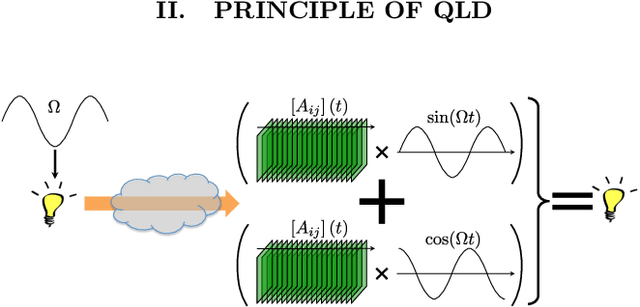
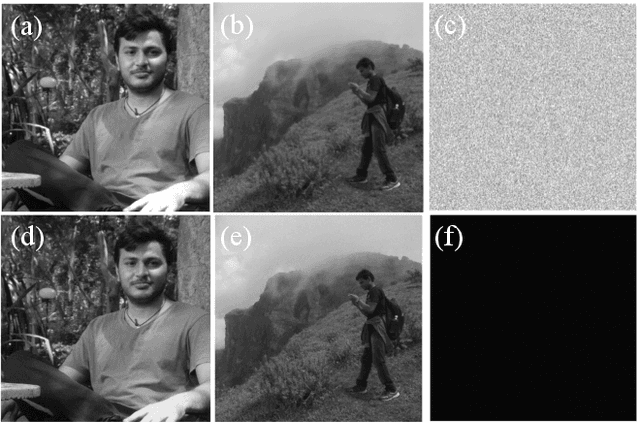
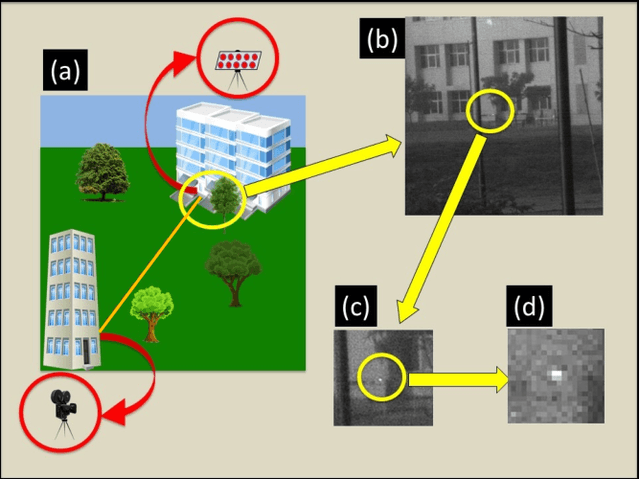
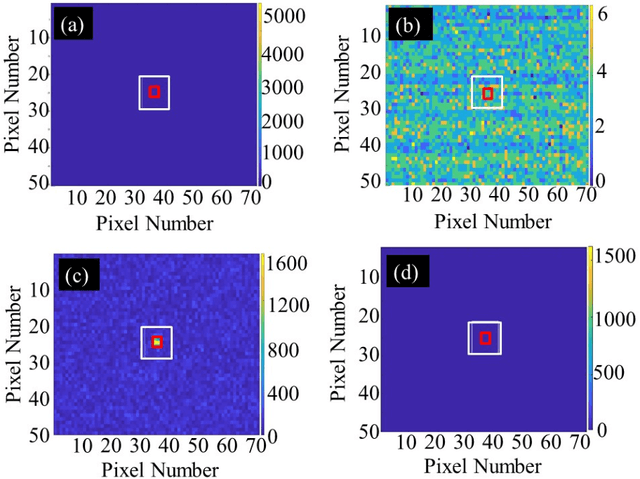
Abstract:We report experiments conducted in the field in the presence of fog, that were aimed at imaging under poor visibility. By means of intensity modulation at the source and two-dimensional quadrature lock-in detection by software at the receiver, a significant enhancement of the contrast-to-noise ratio was achieved in the imaging of beacons over hectometric distances. Further by illuminating the field of view with a modulated source, the technique helped reveal objects that were earlier obscured due to multiple scattering of light. This method, thus, holds promise of aiding in various forms of navigation under poor visibility due to fog.
Two-pixel polarimetric camera by compressive sensing
Jun 16, 2017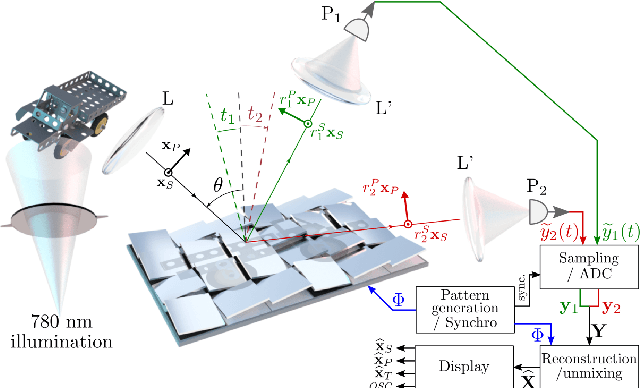
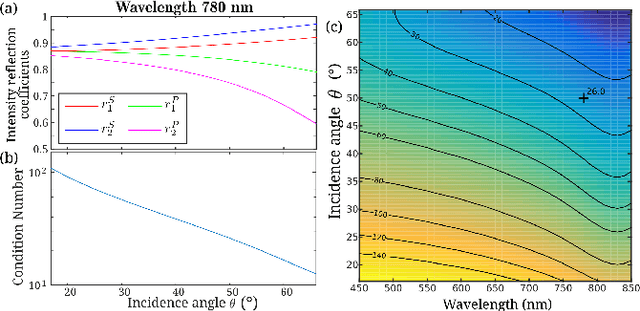
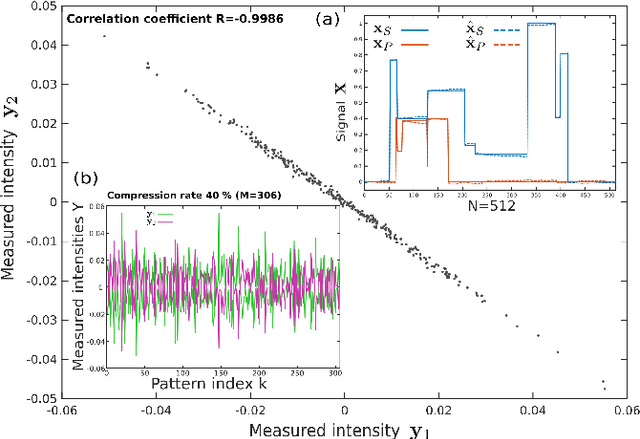
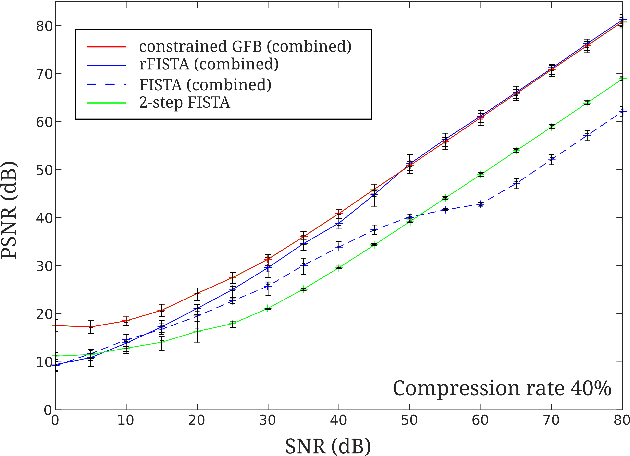
Abstract:We propose an original concept of compressive sensing (CS) polarimetric imaging based on a digital micro-mirror (DMD) array and two single-pixel detectors. The polarimetric sensitivity of the proposed setup is due to an experimental imperfection of reflecting mirrors which is exploited here to form an original reconstruction problem, including a CS problem and a source separation task. We show that a two-step approach tackling each problem successively is outperformed by a dedicated combined reconstruction method, which is explicited in this article and preferably implemented through a reweighted FISTA algorithm. The combined reconstruction approach is then further improved by including physical constraints specific to the polarimetric imaging context considered, which are implemented in an original constrained GFB algorithm. Numerical simulations demonstrate the efficiency of the 2-pixel CS polarimetric imaging setup to retrieve polarimetric contrast data with significant compression rate and good reconstruction quality. The influence of experimental imperfections of the DMD are also analyzed through numerical simulations, and 2D polarimetric imaging reconstruction results are finally presented.
 Add to Chrome
Add to Chrome Add to Firefox
Add to Firefox Add to Edge
Add to Edge